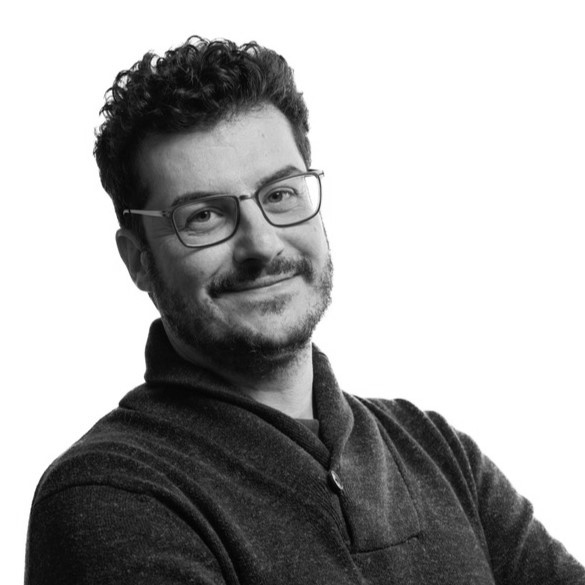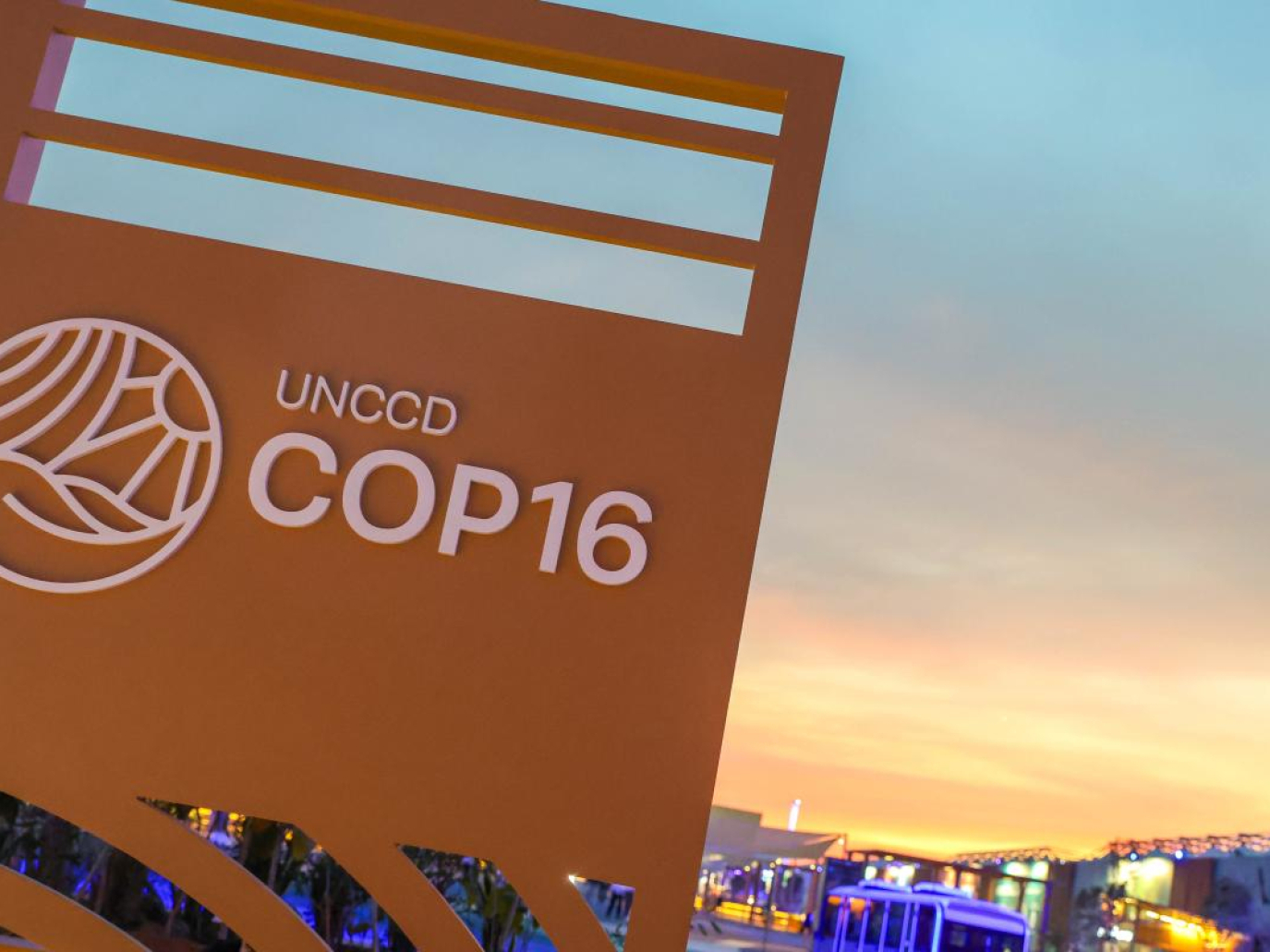The world will have to wait two more years to finalize the negotiation for a new framework or legally binding protocol on drought, which aims to support countries most exposed to chronic water scarcity. In the meantime, resources and projects are being mobilized to support the most vulnerable countries. Thus ends COP16 Desertification, the third UN negotiation in a very intense year for environmental diplomacy.
After COP16 on biodiversity in Cali and COP29 on climate in Baku, nearly 200 countries worked for two weeks in Riyadh to address the growing crisis tied to land degradation, desertification and drought. As the Italian negotiator, Anna Luise, explains to Renewable Matter, "it was the largest and most inclusive UN conference on soil, with more than 20,000 participants," including some 3,500 from civil society. It hosted more than 600 events within the first Action Agenda to engage non-state actors in the work of the Convention. "A really important signal."
Themes, goals, achievements and failures
With the negotiations closing in the early hours of Saturday 14 December, the United Nations Convention to Combat Desertification (UNCCD) worked hard to prioritize land restoration and drought resilience in national policies and international cooperation. Indeed, this is an essential strategy for food security and climate adaptation. To this end, through cooperation and development projects, more than $12 billion has been pledged to address desertification, land degradation and drought worldwide, especially in the most vulnerable countries.
Among African countries, there was anticipation for the establishment of a new legally binding Drought Protocol in Riyadh. But hopes were dashed due to the clash that took place between the industrialized countries and the African countries. The former wanted a broad but readily operational instrument, whereas the latter requested a protocol with determined (and mandatory) economic commitments, a proposal judged inadmissible by the United States. "However, foundations were laid for a future global drought governance, which we would like to complete at COP17 in Mongolia in 2026" explains the Italian negotiator. "Moreover, we should bear in mind that this COP has raised awareness on how the protection and restoration of soil is crucial for climate change and biodiversity. It has also shown how much action can already be taken, involving local and indigenous communities, women and young people. Also the private sector has to play a role, working on issues such as land tenure reform and innovative agricultural practices and at the same time reinforcing the scientific backing of every decision."
As in all UN negotiations, numerous topics were discussed. Key agreements struck at COP16 Desertification include the creation of an Indigenous Peoples Caucus and a Local Communities Caucus to ensure that their unique perspectives and challenges are adequately represented; the continuation of the Science-Policy Interface to strengthen science-based decision-making; the mobilization of the private sector under the Business4Land initiative, which seeks to engage the private sector in sustainable land and water management to restore 1.5 billion hectares of land by 2030. The latter contributes to Land Degradation Neutrality (LDN), a global commitment to improve drought resilience and achieve zero land degradation by 2030.
Finance against desertification
It has been reiterated many times the size of the economic resources needed to restore more than one billion hectares of degraded land and build drought resilience strategies: $2.6 trillion in total investment by 2030. Therefore, the $12.15 billion raised through the Riyadh Global Drought Resilience Partnership are all but impressive. Especially if aimed at supporting 80 of the world's most vulnerable countries in building their drought resilience. Actually, no announcement was expected, and the $10 billion contribution from the Arab Coordination Group alone brought a gust of optimism to this negotiation.
Through the MASE, the Italian government mobilized €11 million for the Great Green Wall (GGW), an African-led initiative to restore 100 million hectares of degraded land in Sahel. Implemented by the International Union for Conservation of Nature (IUCN), this project aims to double down on the results achieved with the first phase in Burkina Faso, Niger, and Ghana, by including two new target countries: Benin and Senegal. The Italian government's Special Envoy for Climate Change, Francesco Corvaro pointed out "the importance of engagement alongside local communities, with a project that stems from listening to the needs and experiences of the populations involved and enhances the results already achieved over the years to create opportunities for sustainable development, adaptation to climate change and widespread income."
The United States and several partner countries and organizations announced nearly $70 million investments to advance the Vision for Adapted Crops and Soils (VACS). The initiative aims to build resilient food systems based on diverse, nutritious, climate-adapted crops grown in healthy soils.
Saudi Arabia announced five new projects worth $60 million to boost climate and environmental efforts within the Saudi Green Initiative. Moreover, the UNCCD COP16 Chair announced the launch of an international sand and dust storm monitoring initiative. This effort is part of a regional early warning system and aims to complement existing efforts overseen by the World Meteorological Organization,
The International Drought Resilience Observatory (IDRO), whose prototype was launched at COP16, will be the first artificial intelligence-driven global platform to help countries assess and improve their capacities to cope with more severe droughts. This innovative tool is an initiative of the International Drought Resilience Alliance (IDRA).
Saudi Arabia, desertification is a business
Water is at the heart of the ambitious Saudi Vision 2030 project. Cop16 was an opportunity for the Saudi government to meet investors and water technology giants who attended many side events in Riyadh. Currently, the Saudi government is seeking private investors to support water purification, reuse, and desalination projects at home and abroad. To do so, it is moving substantial resources and forging important alliances, such as the one with France, which was set forth during the One Water Summit on 3 December, a closed-door event that featured President Emmanuel Macron and diplomats from all over the world.
In his concluding remarks, Abdulrahman Alfadley - COP16 Chairman and Environment, Water and Agriculture minister of Saudi Arabia - took advantage of the podium to credit his country within the roster of virtuous nations. "Hosting this important conference reflects the Kingdom's continued commitment to environmental issues and sustainable development. It reaffirms its dedication to work with all parties to preserve ecosystems, strengthen international cooperation to combat desertification and land degradation, and address drought." These statements, however, do not reflect the negative role taken by the country within the climate negotiations. A good place to start would be to stop the emissions underlying one of the main drivers of desertification, climate change.
This article is also available in Italian / Questo articolo è disponibile anche in italiano



